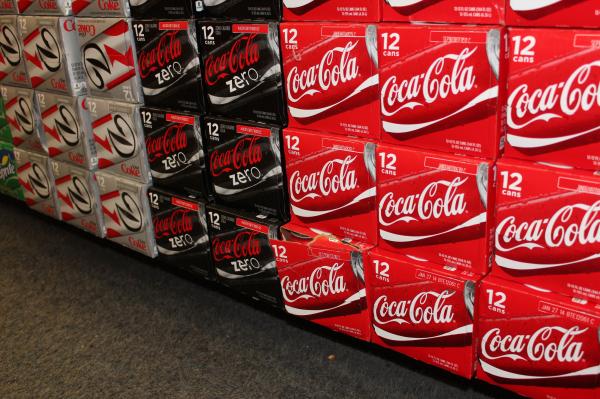-
Tips for becoming a good boxer - November 6, 2020
-
7 expert tips for making your hens night a memorable one - November 6, 2020
-
5 reasons to host your Christmas party on a cruise boat - November 6, 2020
-
What to do when you’re charged with a crime - November 6, 2020
-
Should you get one or multiple dogs? Here’s all you need to know - November 3, 2020
-
A Guide: How to Build Your Very Own Magic Mirror - February 14, 2019
-
Our Top Inspirational Baseball Stars - November 24, 2018
-
Five Tech Tools That Will Help You Turn Your Blog into a Business - November 24, 2018
-
How to Indulge on Vacation without Expanding Your Waist - November 9, 2018
-
5 Strategies for Businesses to Appeal to Today’s Increasingly Mobile-Crazed Customers - November 9, 2018
Soda tax linked to drop in sugary beverage drinking
Consumption of soda and other sugary drinks fell by more than a fifth in low-income neighbourhoods of Berkeley after the California city became the first in the U.S. to introduce a special tax past year, according to a study published Tuesday.
Advertisement
The decrease is even more notable when compared to the 4% increase in consumption of sugar sweetened beverages in Oakland and San Francisco, which do not have similar excises taxes on the beverages, despite failed attempts by San Francisco to follow Berkeley’s lead.
The findings were based on comparisons of interviews with Berkeley residents in 2014 and then between April and August 2015.
Although the Wall Street Journal quotes a consultant paid by the beverage industry as saying the results are “unreliable”, these findings could nonetheless help soda-tax advocates make their case in other cities considering similar legislation; now, San Francisco is considering a soda tax, along with nearby Oakland and Albany, Calif.
This latest UC Berkeley study focused on the short-term impact of the soda tax on consumption and can not tell whether the post-tax decline was due to higher retail prices or a greater awareness of the health consequences of sugary drinks, which include obesity, diabetes, heart disease and tooth decay.
Berkeley became the first city in the country to approve the controversial soda tax in an effort to reduce obesity and diabetes. Diet drinks and sodas are not subject to the tax because they use sugar substitutes.
In fact, if trends continue, public health experts predict that taxes have the potential to be one of the most effective policy strategies to achieve health equity.
Dr. Pepper Snapple Group is one of multiple distributors affected by the soda tax.
More than two dozen USA cities have attempted to pass soda taxes, and failed.
Interviews occurred before and after the tax went into effect.
Near busy streets, interviewers asked residents in Berkeley, Oakland and San Francisco how often they drank beverages in five categories: full-calorie soda, sports drinks, energy drinks, fruit drinks and sweetened tea or coffee concoctions. After Mexico enacted its soda tax, public health researchers found that every socioeconomic group drank fewer sugary drinks. The neighbourhoods also skewed more heavily towards African-Americans and Latinos, who are bigger drinkers of sugar-sweetened beverages, according to previous studies.
Advertisement
This June, a federal judge put on hold a city plan requiring health warnings for sugary drink advertisements after the beverage industry argued the requirement violated free-speech rights.





























